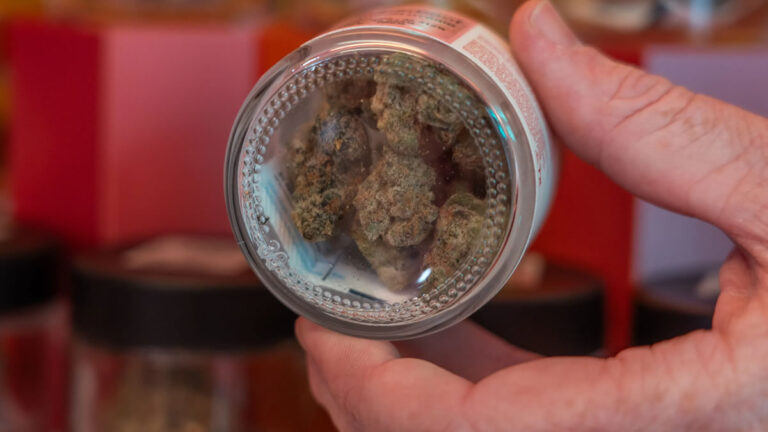Texas lawmakers have convened for a special legislative session, with the regulation of hemp-derived consumable products, including those containing THC, once again taking center stage. This follows Governor Greg Abbott's veto of Senate Bill 3 (SB 3), a controversial piece of legislation from the regular session that would have banned the sale of most hemp products containing any level of intoxicating THC. The veto was a significant moment, temporarily sparing a rapidly growing industry that supports thousands of retailers and farmers across the state. Now, a new bill with similar language, Senate Bill 5 (SB 5), has been introduced, reigniting the debate over how Texas should handle these popular but often unregulated products. This guide provides a refresher on the proposed legislation and the current legal landscape for hemp, CBD, and marijuana in Texas.
The Vetoed Bill: What Was in Senate Bill 3?
Senate Bill 3, often referred to as the "THC ban," was a comprehensive bill that aimed to significantly restrict the consumable hemp market in Texas. Had it been signed into law, it would have taken effect in September. The bill proposed to prohibit most intoxicating hemp-derived cannabinoids, which are found in popular products like delta-8 vapes, THC gummies, and cannabis-infused beverages. While it would have kept non-psychoactive cannabinoids like CBD and CBG legal, it would have placed them under much stricter rules.
Key provisions of the vetoed SB 3 included:
- A ban on the sale and marketing of these products to individuals under 21 years of age.
- A prohibition on selling any cannabinoid-containing products within 1,000 feet of a school.
- A requirement for all such products to have tamper-evident, child-resistant, and resealable packaging.
The penalties proposed under SB 3 were severe:
- A third-degree felony for manufacturing or selling hemp products containing cannabinoids other than CBD or CBG.
- A Class A misdemeanor for possessing such products.
- A Class A misdemeanor for shipping or mailing any consumable hemp product containing any cannabinoid.
Proponents of the bill, including Lieutenant Governor Dan Patrick, who called it a "life-and-death issue," argued it was necessary to protect consumers, especially youth, from unregulated and potentially dangerous intoxicating products. After Governor Abbott's veto, Patrick criticized the decision, arguing that any alternative regulatory approach would take too long to implement, leaving the market in its current state.
The Special Session and Senate Bill 5
The Texas special session, which can last up to 30 days, allows lawmakers to legislate only on matters included in the governor's agenda. The reintroduction of this issue via Senate Bill 5 (SB 5), authored by Senator Charles Perry, indicates a strong desire among some legislative leaders to see these restrictions passed. The language of SB 5 is reportedly similar to the vetoed SB 3, aiming to block the manufacturing, sale, possession, and use of consumable hemp products that contain any amount of any cannabinoid other than CBD and CBG.
The outcome of this special session will determine the future of the consumable hemp industry in Texas, including the availability of popular delta-8 and other THC-derived products.
Understanding the Legal Context in Texas
To grasp the significance of this debate, it's important to understand the current legal distinctions between hemp, CBD, and marijuana in Texas.
- What is Hemp? The Texas Agriculture Code defines "hemp" as the plant Cannabis sativa L. containing a delta-9 THC concentration of less than 0.3% on a dry-weight basis. This aligns with the 2018 federal Farm Bill, which legalized hemp production.
- What is the difference between THC and CBD? Cannabidiol (CBD) is a non-psychoactive compound derived from cannabis, known for its potential therapeutic benefits without causing a "high." Tetrahydrocannabinol (THC) is the primary psychoactive compound in cannabis that causes intoxication. The legal hemp products in question often contain THC isomers like delta-8, which are psychoactive but are derived from legal hemp.
- Is Recreational Marijuana Legal in Texas? No. Under both state and federal law, recreational marijuana (cannabis with a delta-9 THC concentration above 0.3%) remains illegal. Possession penalties vary by amount, with possession of two ounces or less being a Class B misdemeanor under the Texas Health and Safety Code.
What About Medical Marijuana in Texas?
Texas does have a limited medical cannabis program, known as the Compassionate-Use Program (TCUP). Created in 2015, it allows registered physicians to prescribe low-THC cannabis (containing no more than 0.5% by weight of THC) to patients with specific qualifying medical conditions. The program has been expanded over the years, and as of 2025, qualifying conditions include:
- Epilepsy and other seizure disorders
- Multiple sclerosis and spasticity
- Amyotrophic lateral sclerosis (ALS)
- Autism
- Terminal cancer
- Post-traumatic stress disorder (PTSD)
- An incurable neurodegenerative disease
- Chronic pain, Crohn’s disease, degenerative disc disease, and traumatic brain injury (added in 2025).
This program is highly restrictive and distinct from the consumable hemp market that SB 3 and SB 5 aim to regulate.
Conclusion: An Industry's Future Hangs in the Balance
The Texas special session places the future of the state's consumable hemp industry at a critical juncture. The debate pits public health and safety concerns about unregulated intoxicating products against the economic interests of a thriving industry and the desires of consumers who use these products for wellness and recreation. The outcome of Senate Bill 5 will determine whether Texas moves towards a near-total ban on intoxicating hemp-derived products or seeks an alternative regulatory path. For thousands of retailers, farmers, and consumers across the state, the next 30 days will be crucial.


